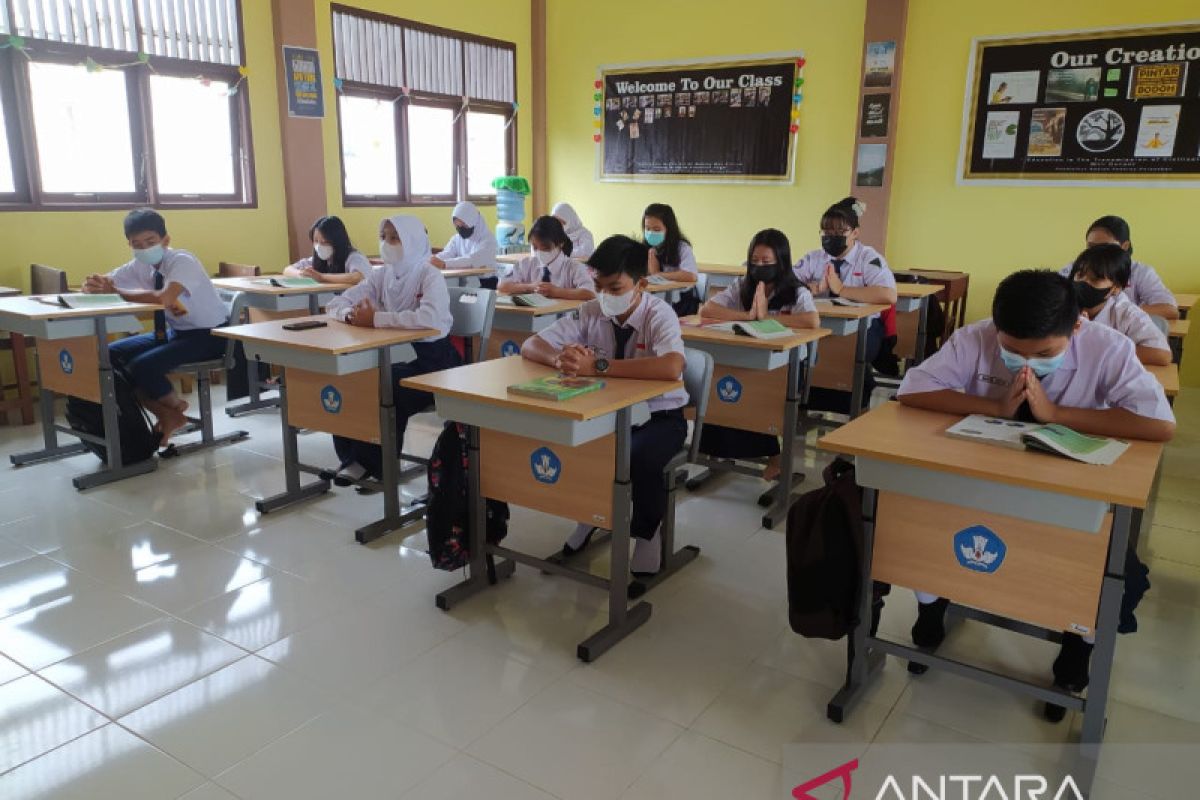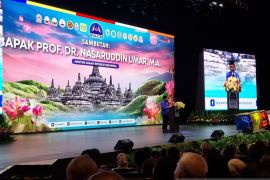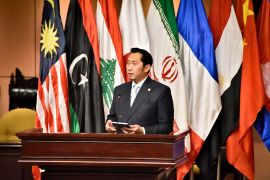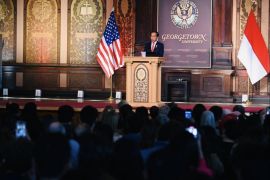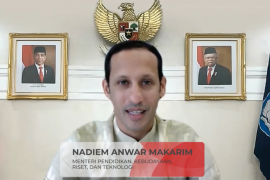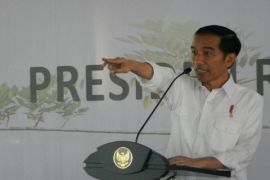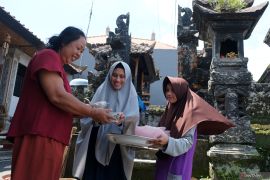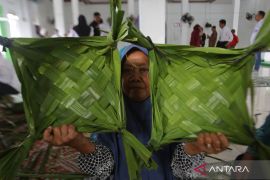SMPN 19, or 19 State Junior High School, in West Singkawang Sub-district, West Kalimantan, is one such school that is best known for applying the principles of tolerance in diversity.
The school was founded in 2015. During seven years of its operations, the school has turned out to be a role model for implementing values of tolerance in its teaching and learning activities.
The students of SMPN 19 hail from different ethnicities: Chinese, Dayak, Malay, Batak, Madurese, Javanese, Bugis, and Sundanese.
The Education and Culture Office of Singkawang City has urged every school to have in place programs that teach local wisdom to expand the scope of educational activities. Hence, the principal and teachers of SMPN 19 have readied three extracurricular programs that invite students to partake in cross-cultural activities: lion dance performance, tari kipas or fan dance, and tundang art involving local poem-telling pantun and the musical instrument gendang.
Students of the 7th, 8th, and 9th grades are given the opportunity to participate in the activities supported by trained teachers.
In its implementation, students usually join an after-school activity that is culturally different from them. For instance, the lion dance, or barongsai, derived from the Chinese culture would be performed by a group of Dayaknese and Javanese students. Meanwhile, the Chinese students would tell about the Malay-art poem pantun.
The school has 440 students and 32 teachers, with 370 students of Chinese-descent, 50 being Malays, while the rest are Dayaknese, Madurese, Bataknese, Sundanese, Javanese, and Bugis. Most teachers are Malay and Javanese.
"There is always a sense of togetherness among us," the principal of SMPN 19, Eva Purwanti, remarked.
Other benefits of joining these art clubs are that the students learn about ethics and manners. Purwanti explained that when students first entered school, they were less polite. However, since having joined the art activities, they have become more respectful toward one another.
Moreover, SMPN19 regularly holds traditional and religious holidays. Teachers and students could be found wearing red attire during Chinese New Year celebrations, as red is an auspicious color. A banquet would be held, thereby bringing together several students and teachers from different backgrounds. During Eid al-Fitr, events are held, such as a feast for breaking the fast and "Halal Bihalal," the act of forgiving each other after the month of Ramadan.
"When there is a Christmas celebration, other students of other religions would join in. In fact, this year, we are preparing for Easter Day," Purwanti highlighted.
Indonesia's motto, Bhinneka Tunggal Ika, has always been accentuated during every celebration. Mayor of Singkawang, Tjhai Chui Mie, had once attended the students' celebration of Lunar New Year.
Permits and Prayers
A praying session is held at the start and end of a school day. Students in loud voices lead prayers. If it is a Buddhist student's turn, he or she would read the Paritta. If the student is Muslim, he or she would pray in the Islamic way. Likewise, Catholics and protestant Christians, would say prayers according to the respective religion's teachings.
"At every flag ceremony on Monday morning, students take turns in saying the prayer according to the religion they embrace," SMPN 19 counseling teacher Effendi remarked.
This practice of taking turns to say prayers had been followed since 2018. However, since the pandemic struck, even during limited face-to-face learning that started on Monday, January 10, 2022, no flag ceremonies were held.
During the Lunar New Year celebrations, several students at SMPN 19 usually seek permission for leave starting even a day before the 1st day of Chinese New Year when there is a reunion dinner in the evening before.
Permission for leave usually extends for the next week. However, few students attend school on the third day of the Lunar New Year, thereby making the school's atmosphere quiet.
"I feel like diversity is not a problem. Diversity is not to find differences but instead to understand each other. The teachers and students are amazing," Purwanti affirmed.
A model for tolerance
SMPN 19, which occupies the building of a former elementary school (SD), stands on red soil. On a rainy day, the schoolyard would be muddy and dirty, as traces of the students' shoes would clearly mark the floor.
In 2019, the school received assistance in the form of a new two-story building from the Singkawang administration. Eight classrooms are occupied by the 8th and 9th graders. Every time they entered the classroom, students took off their footwear, so the class floors would not be sullied by dirty shoes.
Words of wisdom from world figures, such as Mother Teresa and Jack Ma, adorn the walls of the classroom terrace.
Also featured are warnings of the dangers of smoking in three languages; Indonesian, Mandarin, and English. Inside the class, one finds a list of Pancasila values that students must embody: to have a critical mind, forge gotong royong or cooperation, embrace global diversity, be independent and creative, believe in God, and express noble character.
"All students made the artsy crafts and decorated the classroom on their own," Effendi highlighted.
Singkawang City has bagged the title of the most tolerant city in Indonesia in 2018 owing to its application of the values of diversity in its schools. In 2020, it stood second followed by the cities of Manado, Tomohon, Kupang, Surabaya, Ambon, Kediri, Sukabumi, and Bekasi.
Effendi highlighted his team's keenness to make SMPN 19 a "storefront" or a model that can be exemplified for edification of tolerant values to be applied for other schools.
"We are optimistic that what is applied in SMPN 19 would be emulated in other schools," an SMPN 19 teacher stated.
On a separate occasion, Mayor of Singkawang, Tjhai Chui Mie, spoke of feeling unsure about what strengths or traits of Singkawang City made it the most tolerant city in Indonesia. However, she has vowed to continue to maintain the achievement and bring about improvements in other aspects in detail.
Mie believes that as the city leader, ranks did not really matter, but the most important aspect is to preserve the social harmony of Singkawang City, so that it remains safe, comfortable, and peaceful.
Editor: Rahmad Nasution
Copyright © ANTARA 2022
